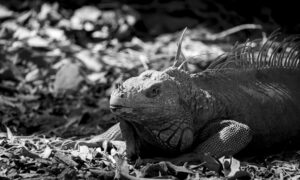Paracelsus, born Theophrastus von Hohenheim, was a transformative figure during the German Renaissance. Often referred to as the father of toxicology, he played a crucial role in the medical revolution of the Renaissance, emphasizing the importance of observation combined with ancient wisdom. More than a physician, Paracelsus was also a philosopher, alchemist, and visionary whose radical ideas continue to influence modern science and holistic medicine.
Challenging the Norms of His Time
Paracelsus rejected the traditional adherence to outdated teachings. Instead, he promoted a revolutionary approach that valued empirical observation alongside inherited wisdom. His insistence on direct experience over blind acceptance made him a pioneer of Renaissance medical reform. By questioning long-held doctrines, he sought to bridge the gap between scientific discovery and spiritual insight.
The Father of Toxicology
His groundbreaking studies on the effects of chemicals on the human body earned Paracelsus the title “Father of Toxicology.” He introduced the concept that “the dose makes the poison,” fundamentally altering how substances were viewed in medicine. This principle laid the foundation for modern pharmacology and toxicology.
A Blend of Science and Divination
Paracelsus was also drawn to divination and esoteric knowledge. His writings became central to the Paracelsian movement and were later studied by Rosicrucians. He believed that astrology and celestial influences played a role in health, even creating astrological talismans for healing purposes. His spiritual and medical insights inspired generations of scholars and healers.
A Holistic Worldview
Paracelsus embraced the Hermetic, Neoplatonic, and Pythagorean philosophies of the Renaissance. He viewed the human body as a microcosm of the universe and believed that understanding nature’s harmony was key to healing. He integrated the classical four elements—earth, air, fire, and water—into his medical philosophy, often using creative analogies such as comparing the world to an egg to explain natural relationships.
Science as a Divine Mission
To Paracelsus, science and religion were deeply intertwined. He believed that discovering the secrets of nature was a sacred duty, with scientific revelations serving as messages from God. In his view, the virtues of natural objects were divine in origin and existed even before the creation of the universe. He argued that healing required not just skill, but good character, humility, and deep faith in God.
Early Life and Education
Paracelsus was born in the village of Einsiedeln. His father, Wilhelm, was a chemist and physician, while his mother worked at a local abbey hospital. From an early age, he was immersed in natural sciences and medicine. Under his father’s guidance, Paracelsus studied botany, alchemy, mining, and natural philosophy. He also received instruction from local clerics and possibly influential thinkers of the time through their writings.
At 16, he began formal medical studies at the University of Basel and later attended universities in Vienna and Ferrara, where he earned his medical doctorate. These formative experiences shaped his groundbreaking ideas that would redefine the practice of medicine.
Holistic Medicine and the Human Spirit
Paracelsus promoted a holistic approach to healing, emphasizing the importance of treating the whole person—body, mind, and spirit. He believed that divinity could be found in every aspect of life and that reconnecting with nature and our inner spirituality was essential for health and wellbeing. His teachings continue to resonate today, particularly in the realms of alternative and integrative medicine.
A Life of Exploration and Service
Between 1517 and 1524, Paracelsus traveled extensively across Europe and into the Middle East, serving as a military surgeon in numerous wars. These journeys exposed him to diverse cultures and practices, enriching his medical knowledge and shaping his philosophical outlook.
Upon returning to Salzburg in 1524, he found little opportunity to practice medicine and turned to writing. He authored several important medical texts, including Elf Traktat and Volumen Medicinae Paramirum, which examined common diseases and introduced his medical principles. During this time, he also explored deep philosophical questions about life, death, health, and humanity’s place in the universe.
Legacy of a Revolutionary Thinker
Paracelsus’s unique blend of science and spirituality has left an enduring legacy. He reminds us that scientific exploration can coexist with reverence and moral integrity. His life exemplifies how curiosity, faith, and a commitment to healing can revolutionize our understanding of the world.
Today, Paracelsus is remembered as a true pioneer who changed the course of medicine and philosophy. His story is a powerful testament to the potential within each of us to seek truth, question convention, and strive for deeper understanding.









